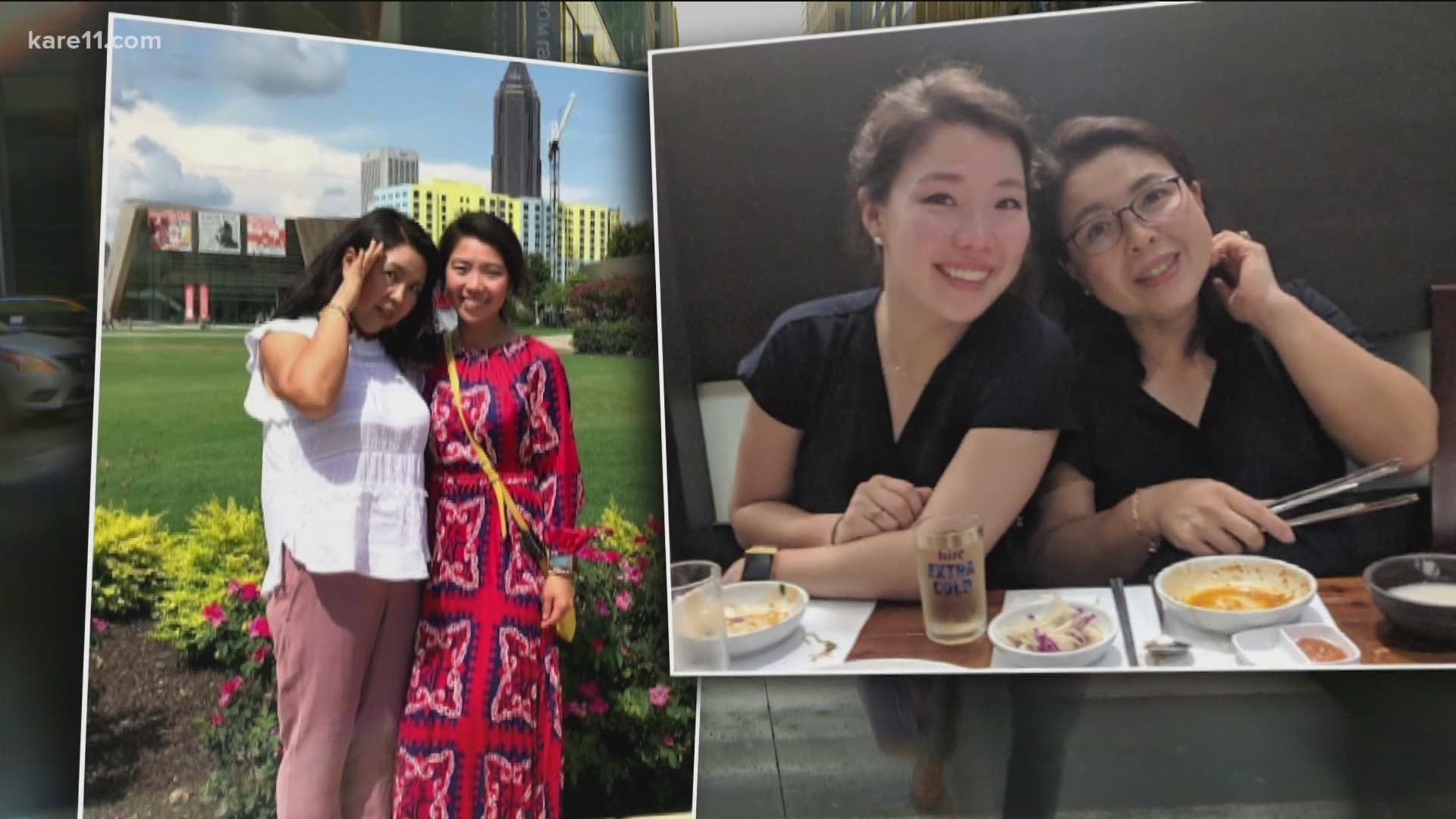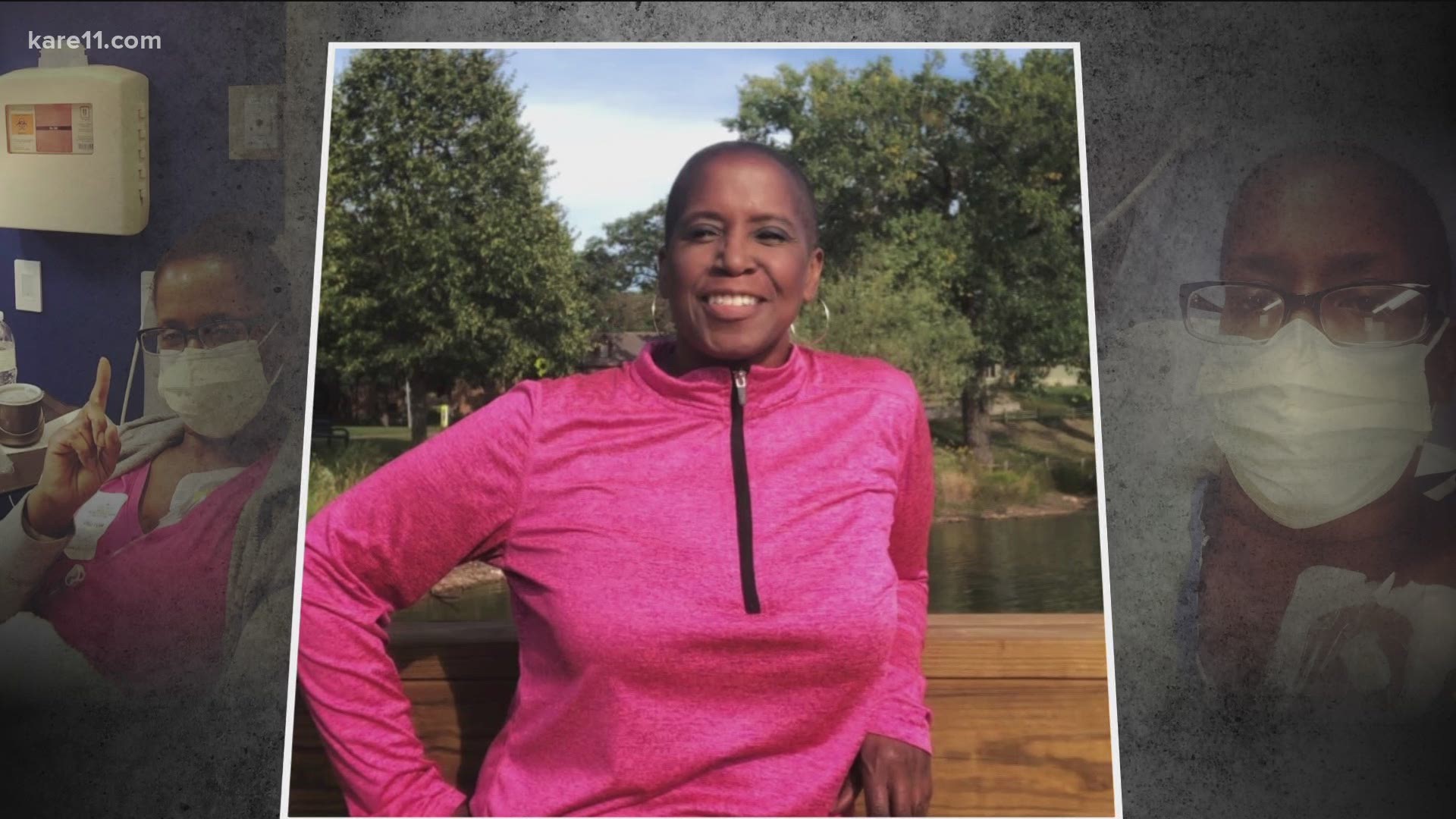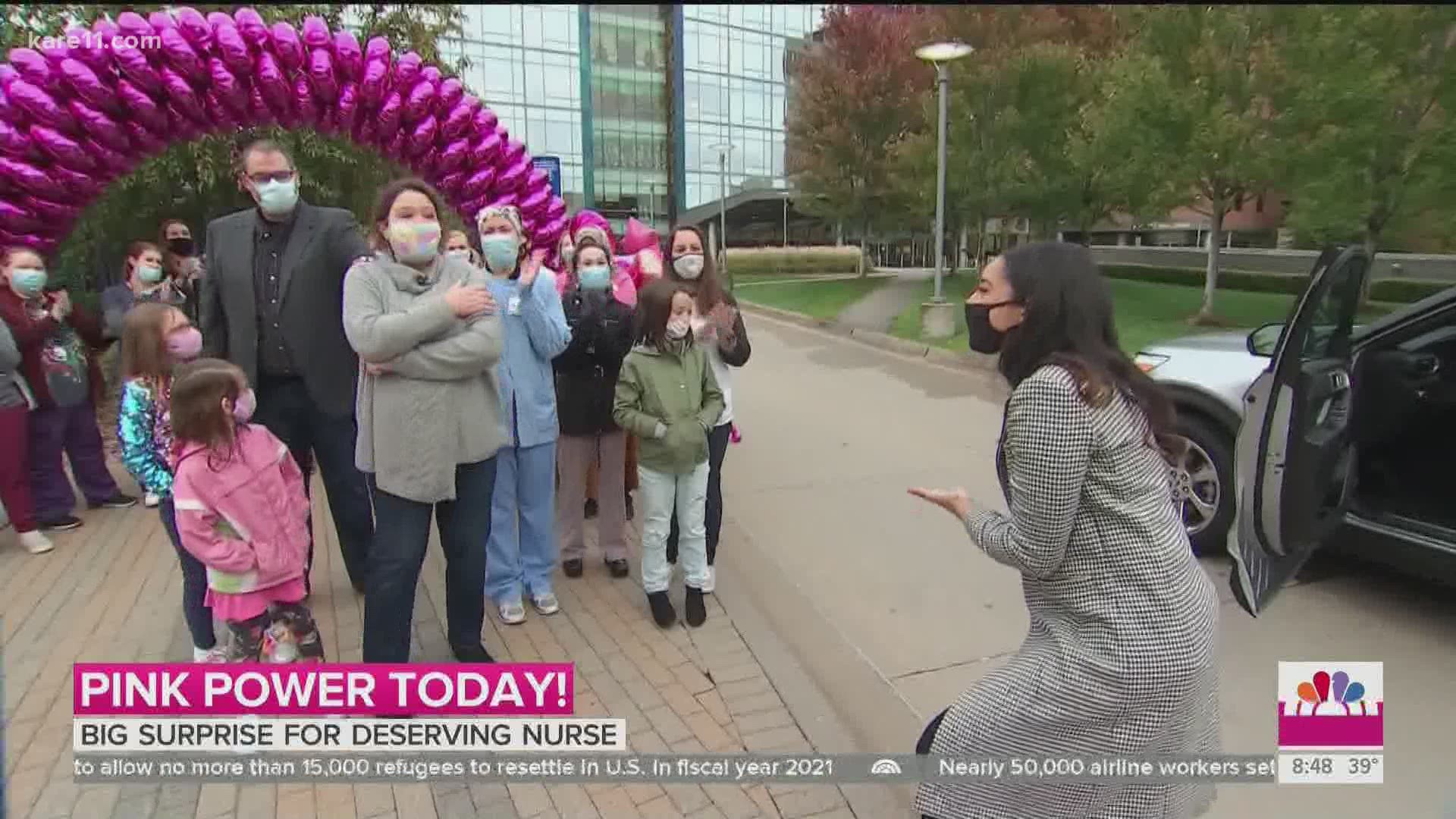MINNEAPOLIS — If you had an opportunity to find out whether you were going to get cancer at an unknown point in your life, would you?
Depending on how you see it, it may be a Pandora's Box ... but one that's worth opening.
I decided to open my box. The biggest reason? My mom. My rock. My best friend. My mom was diagnosed with breast cancer when she was 39-years-old. She is a survivor and is completely healthy now, but during the time of her diagnosis, was one of the darkest times for my family.
Because she was so young at the age of her diagnosis, she urged me to give genetic counseling a try. That way, cancer wouldn't take me by surprise, if it happened to be on its way.
Dr. Joy Larsen Haidle at North Memorial Health was my guide and partner in this endeavor. She held the key to some of the answers that were encoded in my genes. As a genetic counselor, Haidle looks at family trees, medical histories of every family member to find patterns that may be worth investigating.
My main question: Did I inherit the genetic mutations that make me prone to breast cancer? Or was my mom's cancer a blip, something that anyone had a chance of getting?
"Everybody has cancer genes," Haidle explained at my first consultation in early January of 2020. "Your body has to have those because their job is to make sure the cancer doesn't happen. So when we're doing one of these tests, we're looking for: 'Is there a change in one of those genes that turns it off?'"
She added that if one of those genes happened to have a mutation that prohibits it from doing the work it's supposed to be doing, that person may be more susceptible to cancer.
"So as this person goes through life, they're going to have the same exposure everybody else had," she said. "But this time, it stops the second copy of the gene from working and we'd anticipate them to go on to get cancer from a younger age."
After the first consultation, I had some time to think. I was nervous to find out the truth, but I felt like I wanted to know. After her recommendation for genetic testing, she left it to me to decide whether I wanted it.
"Is it something you want to do?" she asked me carefully.
"I would like to know," I said slowly. "Whatever the results are, I'd like to know."
After the decision, everything was as simple as a quick blood draw. My blood vial was then sent to a third-party lab that North Memorial works with. It was shipped off in a box and that was it.
For me, Dr. Haidle requested the lab check 54 genes. A handful of those genes were so-called "breast cancer genes" and the other half were "colon cancer genes." Colon cancer runs in the family for me too, from my dad's side.
A month went by before my results came back and I was able to meet with Dr. Haidle again. The results, really, weren't something I was expecting at all.
The good news was that all of my colon cancer genes were working fine. Even the infamous BRCA 1 and BRCA 2 genes were working fine too, inside my body. However, I wasn't in the clear.
"On your test, it shows there's a gene called ATM," Dr. Haidle said. "this is considered a medium-risk breast cancer gene."
Turns out, a whole different gene was inside me with a mutation. Just waiting to trip up, somewhere in my lifetime.
"ATM is a very common medium-risk cancer gene, we run into it on a pretty frequent basis when we do the panels," Haidle said. "Current data suggests that the chance when a woman has this gene not working currently, to get a breast cancer over her lifetime ranges from 17% up to 60%."
Seventeen to 60%. That was a wide range. However, that isn't the end to the effect this ATM mutation has.
"It's there to say it might have a role in ovarian," Haidle said. "It's not there to say we should do anything different about it yet."
On top of that, there was another aspect to this mutation. It plays a crucial role in my family planning – something I haven't even started thinking about.
"If by chance, your partner or your husband happens to have a mutation in the ATM gene, then there's a chance that both of you could pass the non-working copy of ATM to an offspring," she said. "When that happens, if someone has no working copy of ATM, that's associated with a condition called Ataxia Telangiectasia."
Ataxia Telangiectasia, according to the National Library of Medicine is a rare, multi-organ, neuro-degenerative disorder with increased vulnerability to cancer and infections.
"Should I be panicking?" I asked. "Where's the point where I feel okay, I'm still in charge here?"
That was up to me to decide how I feel about the information that was given to me on this February day.
Right now, family planning aside, there isn't much I can do with this information. Mammograms for me, will start at age 29, 10 years before my mom's age when she was diagnosed. That's about it for now.
Haidle asked me if I was glad I did the testing. I am. I still believe that knowledge is power. This way, if breast cancer does come my way, I can say that I saw it coming from miles and miles away. I think this piece of information and years of preparation will help me bring more fight and hope to the battle.
I also told Haidle that I feel lucky to have access to this kind of technology. This kind of panel testing, according to Haidle, wasn't available until six years ago. Prior to panel testing, she said clients had to get each gene tested individually, leading to exorbitant costs.
If you have a family history of cancer or any other diseases that could be hereditary, it might be worth getting tested too. You can find more information about genetic counseling here, on the North Memorial Health website.



